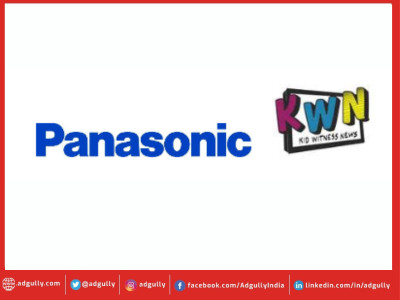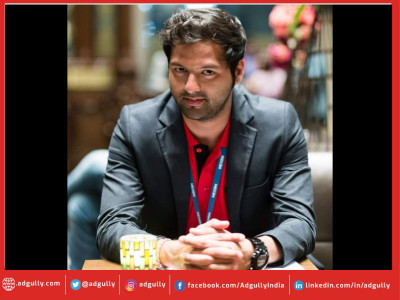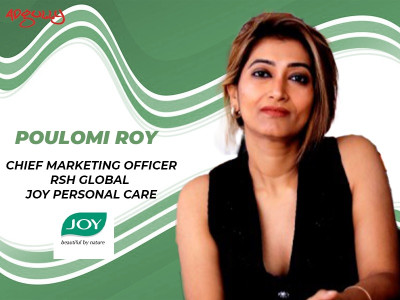Authenticity key to companies' positioning in competitive markets: Himani Rautela
We are in a new era of Public Relations. In the last few years, the importance of reputation management has taken a sea change. More brands and clients, especially from the leadership teams, are viewing Public Relations from a close range. The industry has undergone a radical change with the advent of social media, which has to a large extent changed the approach to Public Relations. We have a relatively new and young audience that we need to face in the coming years so there are bigger challenges for brands and PR practitioners, who have to be more agile and proactive in their thinking to draw up business solutions for clients.
In our exclusive column – PR Conversation – Adgully interacts with leading business leaders and obtains their exclusive views and insights on the various trends in the PR and communications industry.
In conversation with Adgully, Himani Rautela, Deputy General Manager - Communications Lead at Redington Ltd, speaks about the importance of authenticity and differentiation in positioning companies in competitive markets, drawing up effective crisis communication strategies, integrating traditional media outreach with digital marketing strategies, and more.
Could you share more about your role as Communications Lead at Redington? How do your responsibilities align with the company’s business objectives?
As the Communications Lead at Redington, my primary responsibility is to develop and execute comprehensive communication strategies that align with the company’s overarching business objectives. This involves crafting messaging that effectively communicates Redington’s value proposition to various stakeholders. By fostering relationships with key stakeholders, I ensure that Redington maintains an impactful presence in the market, ultimately contributing to the company’s growth and reputation.
With your extensive experience in media outreach and strategic brand building, what are some key insights that you’ve gained about effectively positioning companies in competitive markets?
One key insight that I have gained is the importance of authenticity and differentiation in positioning companies in competitive markets. It is essential to identify and articulate what sets a company apart and to communicate that distinctiveness consistently across all touchpoints. Additionally, building strong relationships can significantly amplify a company’s messaging and enhance its credibility in the market. By continuously monitoring market trends and consumer behaviour, we can adapt our positioning strategies to remain relevant and compelling in an ever-changing landscape.
Leveraging my extensive experience as a seasoned communication professional, specializing in media outreach and strategic brand development, I have navigated the complexities of positioning companies across a diverse spectrum. From startups and consulting firms to NGOs and established brands, within fiercely competitive markets, I have honed invaluable insights that are integral to success in today’s business landscapes.
How do you approach crisis communication? Could you share a notable experience where your strategies helped navigate a challenging situation successfully?
Effective crisis communication is essential, demanding a proactive and transparent stance. When confronted with a crisis, my foremost objective is swift assessment, gathering precise data, and formulating a coherent response strategy. Central to this approach are transparency and candor, alongside ensuring open channels of communication with all stakeholders. A notable instance showcasing our adept crisis communication occurred during a specific incident (for confidentiality reasons, brand names cannot be disclosed). Through prompt acknowledgment of the issue, consistent updates, and proactive solution offerings, we successfully managed to alleviate the situation.
How do you integrate traditional media outreach with digital marketing strategies to create a cohesive communication narrative for brands?
Integrating traditional media outreach with digital marketing strategies is essential for creating a cohesive communication narrative that reaches diverse audiences across multiple channels. We leverage traditional media outlets, such as newspapers, magazines, and broadcast media, to reach a broad audience and establish credibility. Simultaneously, we harness the power of digital platforms, including social media, blogs, and online publications, to engage with target demographics in a more personalized and interactive manner. By aligning our messaging and content across both traditional and digital channels, we create a unified brand experience that resonates with our audience and drives meaningful engagement.
You have worked with India Mobile Congress and other digital technology forums. How do you stay updated with industry trends, and how do you incorporate these insights into your communication strategies?
Staying updated with industry trends is essential for notifying our communication strategies and maintaining a competitive edge. I actively participate in industry events, such as conferences, seminars, and webinars, to stay abreast of the latest developments and emerging technologies. Additionally, I regularly monitor industry publications, research reports, and social media channels to gather insights and identify potential opportunities. By staying informed and adaptable, we can tailor our communication strategies to anticipate market trends and meet the evolving needs of our stakeholders.
Please tell us about your involvement in advising companies on public relations and policy matters, and the impact it had on their overall communication strategies.
As a communication professional, I have had the privilege of advising companies on public relations and policy matters to help them navigate complex regulatory environments and enhance their overall communication strategies. By providing strategic counsel and leveraging my expertise in media relations and stakeholder engagement, I have helped companies effectively communicate their positions on key policy issues and build strong relationships with government officials and regulatory bodies. This proactive approach not only enhances their reputation and credibility but also ensures that their communication strategies are aligned with their broader business objectives.
Could you share a specific example of a successful media campaign you conceptualized and implemented, highlighting the impact it had on the business's objectives?
One notable instance of a highly effective media campaign was a video crafted to pay tribute to the taskforce. Recognizing the paramount importance of igniting excitement and raising awareness about this launch, we orchestrated a comprehensive multi-channel campaign. This initiative seamlessly integrated traditional media outreach with cutting-edge digital marketing strategies.
Our approach encompassed securing prominent coverage in leading industry publications and leveraging influencers to amplify the product’s visibility across various social media platforms. Furthermore, we curated captivating content, including dynamic videos and compelling infographics, designed to inform and captivate our intended audience.
The culmination of our concerted efforts resulted in a significant surge of media interest, garnered acclaim from stakeholders, and solidified our presence within the target market.

















Share
Facebook
YouTube
Tweet
Twitter
LinkedIn